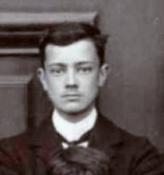
War Memorial
| Major Denys Whitmore PAYNE DSO MC Croix de Chevalier, Legion of Honour | |
|
109th (Heavy) Battery, Royal Garrison Artillery attached to III Corps Date of birth: 5th December 1882 Date of death: 12th August 1949 Died aged 66 Buried at Silton Parish Church, Dorset |

|
| Denys Whitmore Payne was born at Calcutta, India on the 5th of December 1882 the eldest son of Arthur John Lynch Payne, a merchant, and Grace Emily (nee Whitmore) Payne of 83 Thicket Road, Penge in South East London. He was christened at Calcutta on the 3rd of January 1883. He was educated at Hazelwood School from April 1893 to July 1896 where he was a member of the Cricket XI in 1895 and 1896. He was a member of the Choir. The school magazine wrote of his 1895 cricket season: - "Holds out some promise in all departments of the game." They wrote the following of his 1896 cricket season: - " A greatly improved bat, but not reliable. When he did get set, played good and stylish cricket, but wants more confidence and a straighter eye for a leg stump ball. A fair fast bowler, but hardly straight enough. A good field and safe catch." When he left the school the magazine wrote: - "....leaves a sad blank. An efficient Choir leader, an excellent all round cricketer, a promising footballer, and an unusually accomplished artist, and well up to the average in work, he is sure to make his mark." He went on to Wellington College where he was in Anglesey House from September 1896 until July 1900. He passed the entrance examination for the Royal Military Academy at Woolwich in 1900, coming 24th out of 82 candidates. He was a member of the Cricket XI while he was there. On leaving the College he was commissioned as a 2nd Lieutenant in the Royal Field Artillery on the 24th of December 1902 and was promoted to Lieutenant on the 24th of December 1905. In 1911 he was serving with 74 Company, Royal Garrison Artillery in the UK. He embarked for France on the 25th of September 1914 where he served with the 109th (Heavy) Battery and saw action in support of the Indian Corps at Neuve Chapelle in the October and November. He was promoted to Captain on the 30th of October 1914. During his time at Neuve Chapelle he wrote of the shell shortages from which his battery was suffering at the time. During an German attack on the 4th of November 1914 they ran very short of ammunition and he wrote: - “Our effort was futile. One round now and then. This cannot have encouraged our people, nor have discouraged the enemy. We probably wasted some good ammunition.” The 4.7 inch shells were also poorly made and prone to premature explosion; he wrote: “We are likely to cause a fat lot of damage to the Hun.” He wrote on the 29th of November 1914: - “We have been restricted again to three rounds per gun of high explosive shells.” From 1916 to 1917 he served as a Brigade Major in the Heavy Artillery and in 1917 was appointed as a General Staff Officer 2nd Grade D.A.A. Q.M.G and served with 9th Divisional Headquarters. He was awarded the Military Cross in the King’s New Years Honours list of the 1st of January 1917 for his services as Brigade Major, III Corps Heavy Artillery. He was promoted to Major on the 30th of July 1917. He was awarded the Distinguished Service Order in the King’s New Years Honours List of the 1st of January 1918 and the Croix de Chevalier, Legion of Honour which appeared in the London Gazette on the 19th of December 1917. He was mentioned in despatches in the London Gazettes of the 11th of December 1917 and of the 5th of July 1919. He served with 6th Brigade, Royal Garrison Artillery at Lucknow in India in 1921 and retired from the army as a Lieutenant Colonel on the 27th of April 1927. He was married at Lucknow in India to Lillian L'estelle Elizabeth Georgina (nee Phillpotts) on the 18th of March 1922; they had a son, Anthony Denys Phillpotts, born on the 19th of March 1924. He returned to Hazelwood where he became joint Headmaster of the school from 1935 to 1937. The family lived at Chestnut Cottage, Limpsfield in Surrey. He was recalled for service during the Second World War with rank of Major on the 19th of October 1940 and was promoted to temporary Lieutenant Colonel on the 19th of May 1941. He was awarded the Chevalier de la Legion d'Honneur. He lived at Bourton House, Bourton Gillingham in Dorset and died in Northern Ireland. |
|
| Went on to Wellington College |
Back